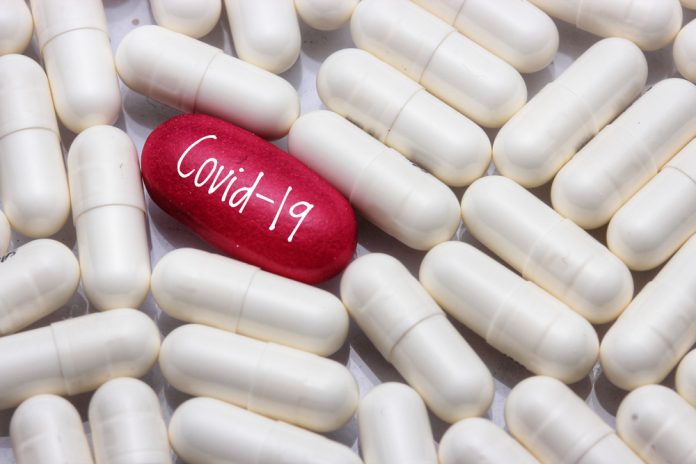With COVID case numbers expected to rise in Australia over the coming weeks and months there is significant concern the numbers of severely sick patients may overwhelm hospitals.
Thankfully, over time we are learning more about COVID and now have a range of medicines that are effective in treating it, including antivirals.
Which medicine a patient receives, if they even need one at all, will depend on the severity of their symptoms and whether they have any underlying health problems.
Here is what we have in our COVID arsenal
When the COVID pandemic began, we didn’t have any drugs to treat the virus. Instead, we had to rely on drugs that could treat COVID symptoms while the body healed itself.
Now we have a range of recommended COVID medicines that are either antivirals or antibody-based drugs. These are suitable for both hospitalised and at-home patients and include lagevrio, remdesivir, paxlovid, evusheld and sotrovimab.
In Australia, there are other antibody drugs available but they are not currently widely used. This includes ronapreve, which is less effective against the omicron strain of the virus, and regkirona which is still being explored in clinical trials.
Other drugs are also used for COVID but, again, they don’t treat the virus. Instead they are mostly used to reduce inflammation in the lungs.
These medicines have all been shown to work in human clinical trials and are either fully or provisionally approved by the Australian Therapeutic Goods Administration for the treatment of COVID.
Each COVID medicine works in a different way. Evusheld and sotrovimab comprise antibody molecules that neutralise the virus and block its entry into human cells, whereas paxlovid works by stopping a key enzyme the virus needs to replicate. Both lagevrio and remdesivir work by getting incorporated into the virus’ genetic material and causing mutations to stop the virus from replicating.
Paxlovid and lagevrio come in tablet form while remdesivir, sotrovimab, and evusheld come as injections that need to be administered by a doctor.
The right drug for the right patient
Clinical guidelines direct health staff as to which drug they need to administer to each patient.
Most people who test positive for COVID will not need treatment with an antiviral drug, as current COVID variants tend to induce mild symptoms that can be managed with rest and isolation at home.
For some patients managing COVID at home, certain health factors mean their doctor will prescribe a COVID drug. This includes people who have a poor functioning immune system, those who are not vaccinated or are not up-to-date with vaccinations, and those who are at a high risk of severe disease.
These risk factors include respiratory conditions such as asthma, cardiovascular diseases including high blood pressure, obesity, diabetes and kidney failure.
Access to COVID antivirals has been expanded in Australia:https://t.co/nwAJ0PO0pS
More about oral COVID antivirals here:https://t.co/IzLbEUJ7yu— Alan Baxter ♛ (@AlanBixter) July 10, 2022
Where you’re treated
If a patient is sick enough to need hospitalisation, specialist doctors will decide if and what COVID drug to prescribe.
If a COVID drug is needed for an at-home patient both lagevrio and paxlovid are available on the Pharmaceutical Benefits Scheme (PBS) for specific people including those over 70, or those over 50 who have one of the risk factors mentioned earlier.
Immunocompromised people over the age of 18, and people who identify as Aboriginal or Torres Strait Islander origin who are over 30 and at high risk, are also eligible for PBS-subsidised lagevrio or paxlovid.
These drugs can be prescribed by a general practitioner (GP) and accessed through a local community pharmacy. If a patient is not able to see their GP in person, a COVID drug can be prescribed by booking a telehealth appointment with a doctor. The drug can then be delivered to their home from their local pharmacy. Importantly, these drugs must be started within five days of symptom onset.
In some instances an at-home COVID patient may require an injection-only drug such as remdesivir or evusheld, which are only available through the patient’s local hospital network. Sotrovimab is another COVID drug that is only administered in healthcare facilities. This is because patients need to be monitored after they receive the infusion. General practitioners will refer their patients to a local hospital for these treatments.
How soon can I get COVID again? Experts now say 28 days – but you can protect yourself https://t.co/8cN6VHdx4g via @ConversationEDU
Worth a read— Professor Adrian Esterman (@profesterman) July 13, 2022
What about side effects?
All medicines have side effects, even common medications like paracetamol and aspirin.
If patients do experience side effects, these are likely to be specific to the drug being taken. Some of the possible side effects of lagevrio include mild to moderate diarrhoea, nausea and dizziness in less than 2% of those trialled.
For paxlovid, side effects can include changes in taste, diarrhoea, headache, and vomiting. Serious side effects, which affect fewer than 2% of patients, include liver problems which can cause prolonged nausea or vomiting, loss of appetite, stomach pain, yellowing eyes or skin, and dark urine.
Some of the side effects of remdesivir include rash, sweating, fever, shortness of breath, swelling, changes in blood pressure or heart rate, nausea, and shivering.
Patients who experience side effects while taking a COVID drug should see their doctor if they are concerned. If a patient experiences any severe side effects, such as signs of liver problems, then they should call their doctor immediately or go straight to their local hospital.
Article by:
Associate Professor of the Sydney Pharmacy School, University of Sydney
Pharmacist and PhD Candidate, University of Sydney
Lecturer in Pharmacy and Pharmacology-Head of Breast Cancer Targeting and Drug Delivery Laboratory, University of Sydney
This article is republished from The Conversation under a Creative Commons licence. Read the original article.





